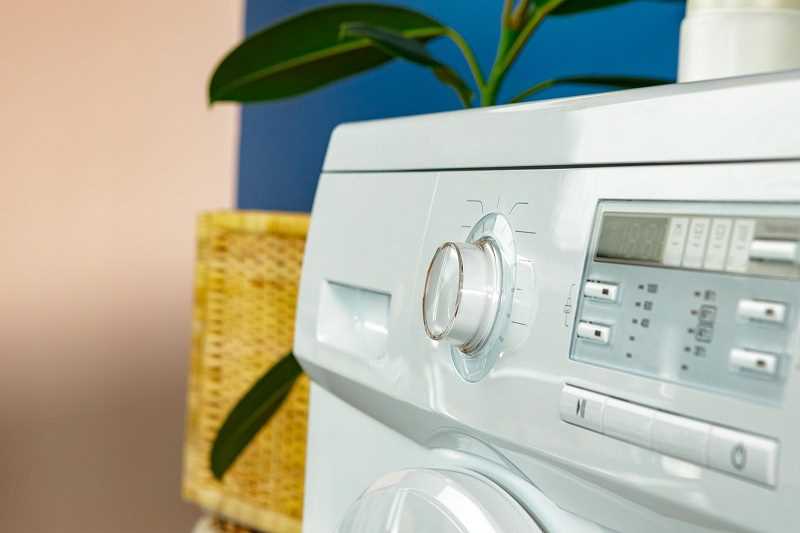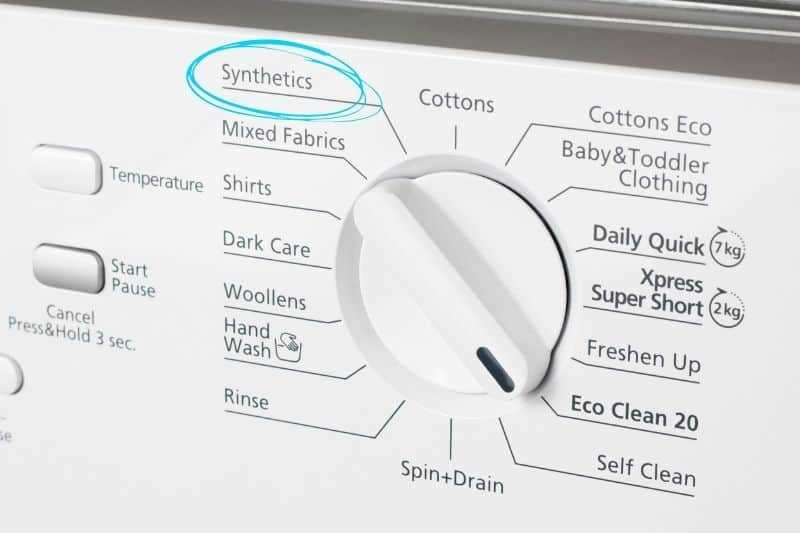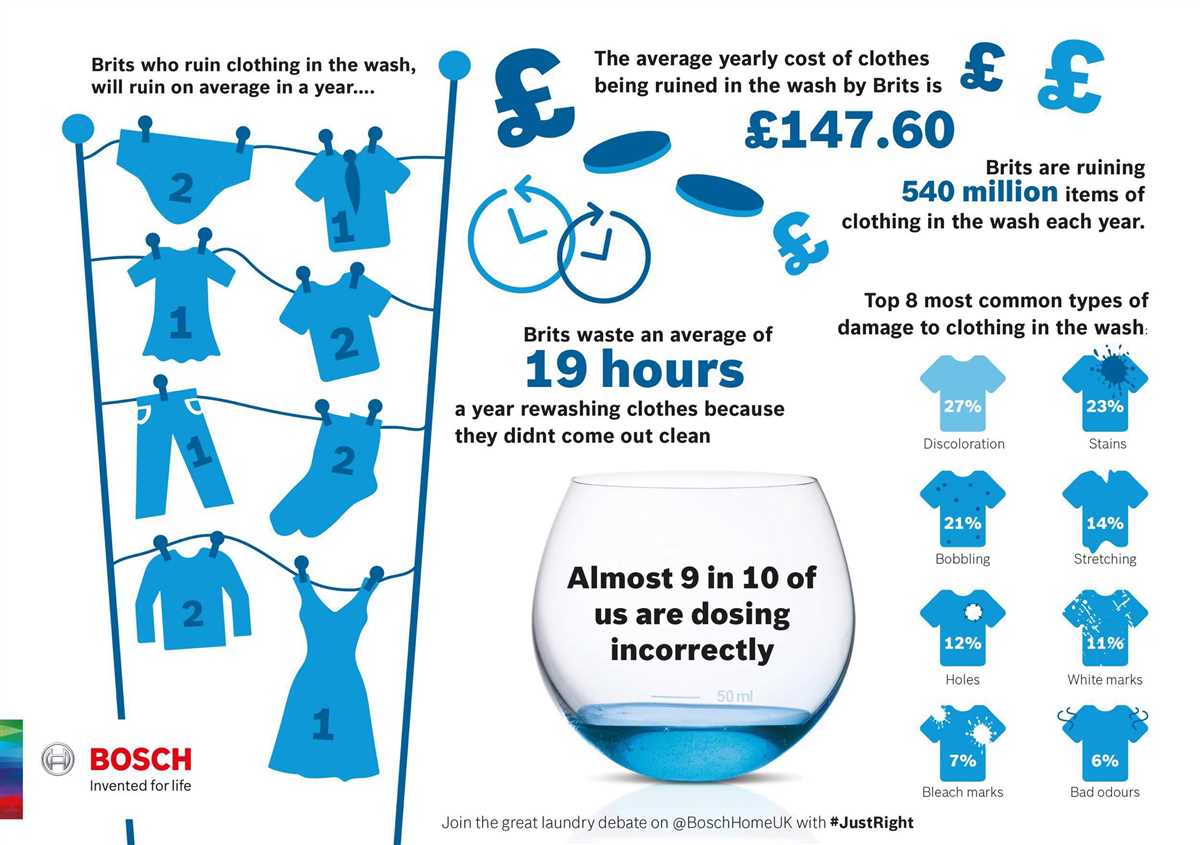




When it comes to doing laundry, many people wonder how long a 90-degree wash cycle actually takes. Whether you’re trying to clean heavily soiled clothes or rid your laundry of germs and bacteria, a 90-degree wash can be a powerful option. This high temperature cycle is known for its ability to effectively remove stains, kill bacteria, and leave your clothes smelling fresh and clean.
So, how long does a 90-degree wash take? Well, the duration of a 90-degree wash can vary depending on the make and model of your washing machine. In general, a 90-degree wash cycle can take anywhere from 1.5 to 3 hours. Some machines offer quick wash options that reduce the cycle time, but they may not reach the full 90-degree temperature.
It’s important to note that a 90-degree wash is not suitable for all fabric types. Delicate fabrics, such as silk or lace, can be damaged by the high heat. Always check the care labels on your clothing before selecting a wash cycle. If your garments can withstand the high temperature, a 90-degree wash can be a great option for deep cleaning and sanitizing your laundry.
However, it’s worth considering that a 90-degree wash cycle uses a significant amount of energy, so it’s not the most eco-friendly option. If you’re concerned about energy consumption or have more delicate items to wash, you may want to consider a lower temperature wash cycle or using an alternative cleaning method, such as soaking or dry cleaning.
In conclusion, a 90-degree wash cycle can be an effective way to remove tough stains and kill bacteria on your laundry. The duration of this cycle can vary depending on your washing machine, but it generally ranges from 1.5 to 3 hours. Just remember to check the care labels on your clothing to ensure they can withstand the high heat. If you’re looking for a more eco-friendly option or have delicate items to clean, consider using a lower temperature wash cycle or alternative cleaning methods.
Understanding the 90-Degree Wash Cycle
The 90-degree wash cycle is a high-temperature setting on washing machines that is used for heavily soiled or stained items. This hot water temperature helps to maximize the cleaning power of the detergent and can effectively remove dirt, bacteria, and allergens from clothes.
Advantages of a 90-Degree Wash

- Deep Cleaning: The high temperature of the water helps to break down stains and remove dirt particles, ensuring a thorough cleaning of your clothes.
- Bacteria and Allergen Removal: Washing clothes at 90 degrees can effectively kill bacteria and remove allergens, making it an ideal option for households with pets or individuals with allergies.
- Whites and Stain Removal: This hot cycle is especially useful for white clothing and heavily soiled items, as it can help to brighten whites and remove tough stains.
Duration of a 90-Degree Wash
The duration of a 90-degree wash cycle can vary depending on the specific washing machine model and load size. On average, it can last between 1.5 to 3 hours. However, some machines may have shorter or longer cycles.
It’s important to note that longer wash times are often necessary for heavily soiled items, as the extra time allows for better stain removal and more thorough cleaning.
Tips for Using the 90-Degree Wash Cycle
- Check Clothing Labels: Before using the high-temperature wash cycle, always check the clothing labels for recommended water temperatures. Some delicate fabrics may not be suitable for a 90-degree wash.
- Pre-treat Stains: For heavily stained items, it’s helpful to pre-treat the stains with a stain remover or by soaking the garment before starting the wash cycle.
- Proper Load Size: Avoid overloading the washing machine when using the 90-degree wash cycle. This allows the water and detergent to circulate freely, ensuring a more effective clean.
- Machine Maintenance: Regularly clean and maintain your washing machine to ensure optimal performance. This includes cleaning the detergent drawer, removing lint from the filter, and running maintenance cycles as recommended by the manufacturer.
Conclusion
The 90-degree wash cycle is a powerful cleaning option for heavily soiled or stained items. Understanding its advantages, duration, and tips for usage can help you make the most of this high-temperature wash setting to keep your clothes fresh and clean.
Factors That Influence Washing Time

Several factors can influence the duration of a 90-degree wash. Here are some of the main factors to consider:
- Load Size: The size of the load being washed can have a significant impact on how long the cycle will take. A larger load will generally take longer to wash.
- Soil Level: The level of dirt and stains on the clothes can affect the washing time as well. Heavily soiled garments may require a longer wash cycle to ensure they are properly cleaned.
- Detergent Type: The type and amount of detergent used can also impact the washing time. Some detergents are designed for quick wash cycles, while others require more time for optimal cleaning results.
- Machine Efficiency: The efficiency of the washing machine itself can influence the duration of the wash. Newer and more advanced machines may have shorter wash cycles due to improved technology and features.
- Water Temperature: The chosen water temperature for the wash can affect the duration as well. A 90-degree wash cycle will typically take longer than a lower temperature cycle.
It is important to consider these factors when determining the length of a 90-degree wash cycle. Understanding the specifics of your machine and laundry needs will help you plan accordingly and achieve the best possible results.
Average Duration of a 90-Degree Wash
When it comes to doing laundry, different wash cycles have different durations. A 90-degree wash is one of the most intense wash cycles, often used for heavily soiled items or to disinfect clothes.
The average duration of a 90-degree wash can vary depending on the specific washing machine model and the load size. However, most 90-degree wash cycles tend to take anywhere between 1.5 to 3 hours.
It’s important to note that 90-degree washes often require additional time for prewashing, soaking, or rinsing, which can extend the overall duration of the cycle.
Before starting a 90-degree wash, it’s essential to check the manufacturer’s recommendations for your washing machine to ensure you’re using the correct settings and load size. Using the wrong settings or overloading the machine can lead to poor washing results or even damage to your clothes or the machine itself.
In addition to the longer duration, it’s worth considering the energy consumption of a 90-degree wash. Hotter wash cycles like this tend to use more electricity to heat the water, resulting in higher energy bills. If possible, it may be more energy-efficient to opt for lower temperature wash cycles, such as 30 or 40 degrees, for lightly soiled items.
Overall, while a 90-degree wash can be effective for deep cleaning or disinfecting laundry, it’s important to be aware of the longer duration and potential energy consumption associated with this wash cycle.
Tips to Reduce Washing Time
1. Sort your laundry efficiently

Separate your laundry into different piles based on color, fabric type, and level of dirtiness. This will allow you to wash similar items together, reducing the number of cycles required.
2. Use the appropriate wash cycle
Choose the right wash cycle for your load. Many modern washing machines have quick wash or express wash options that can significantly reduce the washing time. Be careful not to overload the machine, as this can affect the efficiency of the wash cycle.
3. Pre-treat stains

If you have heavily stained items, pre-treat the stains before washing. This can help to remove the stains more effectively during the wash cycle, reducing the need for multiple washes.
4. Use higher water temperatures
Washing with higher water temperatures can help to remove stains and dirt more quickly. However, be mindful of the fabric care instructions and use hot water only when appropriate.
5. Optimize your detergent usage
Measure your detergent accurately and avoid overusing it. Using too much detergent can result in excessive suds and longer rinse cycles. Follow the manufacturer’s instructions for the recommended amount of detergent based on the load size.
6. Consider using a high-spin cycle
A high-spin cycle can help to extract more water from your clothes, reducing drying time. If your washing machine gives you the option, select a high spin speed to minimize moisture content in your laundry.
7. Avoid unnecessary extra rinse cycles
Unless you have heavily soiled items or specific allergies, try skipping the extra rinse cycle. This will help to save time and water, especially if your washing machine automatically adds an extra rinse by default.
8. Invest in a washer with faster cycles

If you frequently find yourself in need of shorter washing times, consider upgrading to a washing machine with faster cycle options. Look for models that explicitly advertise shorter wash times or quick wash features.
| Tips to Reduce Washing Time |
|---|
| Sort your laundry efficiently |
| Use the appropriate wash cycle |
| Pre-treat stains |
| Use higher water temperatures |
| Optimize your detergent usage |
| Consider using a high-spin cycle |
| Avoid unnecessary extra rinse cycles |
| Invest in a washer with faster cycles |
FAQ
How long does a 90-degree wash take?
The duration of a 90-degree wash depends on several factors, including the make and model of the washing machine. On average, a 90-degree wash can take anywhere from 1-2 hours.
Is it necessary to use a 90-degree wash cycle?
A 90-degree wash cycle is not necessary for most laundry items. It is primarily used for very dirty or heavily-soiled items, such as heavily stained clothing or heavily soiled towels. For regular or lightly soiled laundry, a lower temperature setting will suffice.
Why does a 90-degree wash take longer than lower temperature cycles?
A 90-degree wash takes longer because the higher temperature allows for a more effective removal of stains and a deeper clean. The prolonged wash time ensures that the heat has enough time to penetrate the fabric and break down any dirt or grime.
Can I use a 90-degree wash for delicate fabrics?
No, a 90-degree wash is not suitable for delicate fabrics. High temperatures can cause damage to delicate fabrics, leading to shrinkage, fading of colors, or even fabric deformation. It is best to use a lower temperature cycle or hand wash delicate fabrics.
How can I shorten the duration of a 90-degree wash?
To shorten the duration of a 90-degree wash, you can pre-soak heavily-soiled items to help loosen stains and dirt before placing them in the washing machine. Adding enzyme-based stain removers or laundry boosters can also help to improve the effectiveness of the wash, allowing for a shorter duration.
How long does a 90-degree wash take?
A 90-degree wash typically takes about 2-3 hours. However, the exact time may vary depending on the washing machine and the specific program selected.
Why would I need to use a 90-degree wash?
A 90-degree wash is typically used for heavily soiled or stained items, such as bedding or towels. The high temperature helps to remove tough stains and kill bacteria and allergens.















